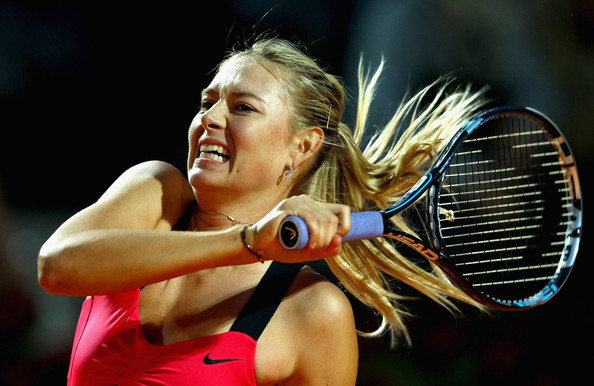Brennan: Maria Sharapova can’t avoid lengthy suspension

Maria Sharapova is either the world’s most beloved drug cheat or the world’s most clueless multimillion-dollar athlete.
It’s one or the other. It can’t be both.
Either she knew meldonium was a performance-enhancing drug, which is why she joined hundreds of her fellow Eastern European athletes in taking the little-known medicine — used in real life for cases of angina and heart failure — for an eye-popping 10 years in her teens and 20s while playing tennis at its highest level.
Or she did not know meldonium came with the wonderful side effect of increasing her endurance, and made the worst mistake an athlete can make: not knowing what is on the list of banned substances, details of which are constantly and readily available to all elite athletes.
Either way, Sharapova has to be suspended from professional tennis, at least through the 2016 Grand Slam events and August’s Rio Olympic Games. Six months at a minimum. And the maximum? Four years, which can be reduced for mitigating circumstances down to two years, or even less.
Because Sharapova turns 29 next month and has faced injuries and declining performances in recent years, a ban of any length could effectively end her career.
There’s something inside most of us that makes us want to believe Sharapova didn’t mean to take a performance-enhancing drug, that she’s not another Lance Armstrong or Marion Jones or Alex Rodriguez. Because she took the highly unusual step of announcing her positive drug test herself rather than following the repulsive, deny-deny-deny strategy employed by those three, we’re tempted to cut her a little slack.
She didn’t hide or lie, at least about the test. She got out in front of the story, which was admirable. (Let it also be said it was a very smart public-relations move.) She didn’t even try to ruin anyone else’s life in the process.
Our senses have been so dulled by the pathetic displays of years’ worth of sports cheaters that after witnessing someone finally taking a little responsibility for her actions, we want to scream out: “Give her another chance!”
But wait. Since this is a sports conversation, let’s look at a few statistics. A worldwide study in late 2014 found that out of 8,300 athletes’ urine samples, 182 contained meldonium. All of those were Eastern European athletes.
Last year, a Russian study found that 724 out of 4,316 athletes in that country (a whopping 17%) had meldonium in their systems.
What are the odds? All these vibrant, young athletes from the same part of the world, all having the same heart-related physical ailments requiring this particular drug at this particular time in their lives? What a coincidence.
This outbreak of creeping meldonium-ism led the World Anti-Doping Agency to ban the drug as of Jan. 1, 2016. How does WADA do this? Does it surprise all the world’s athletes on New Year’s Eve with a new list of banned drugs?
It does not. On the contrary, WADA announced in October that meldonium was being banned, and each nation and sport took it from there, alerting athletes repeatedly over the next several weeks. Sharapova said she failed to click on a link sent to her Dec. 22, but the Times of London reported that four other communications were sent to tennis players in December, all warning that meldonium was about to be banned.
Everyone can miss an email or two or four, right? But these weren’t any old emails. These were the most important emails Sharapova could possibly receive. It’s unfathomable that she really ignored them all.
So what now? She will have a hearing before the International Tennis Federation, likely in May, when she will try to prove through medical records and doctors’ orders why she took this drug for this long. Did she ever list it on the standard medical forms all world-class athletes fill out? That will be telling. Meldonium is not approved by the FDA, so did she obtain it in the United States, where she now lives, and if so, how?
If her case is credible, Sharapova might be able to return to tennis sooner rather than later.
If not, her tennis career is over.
Политика конфиденциальности | Правила пользования сайтом








